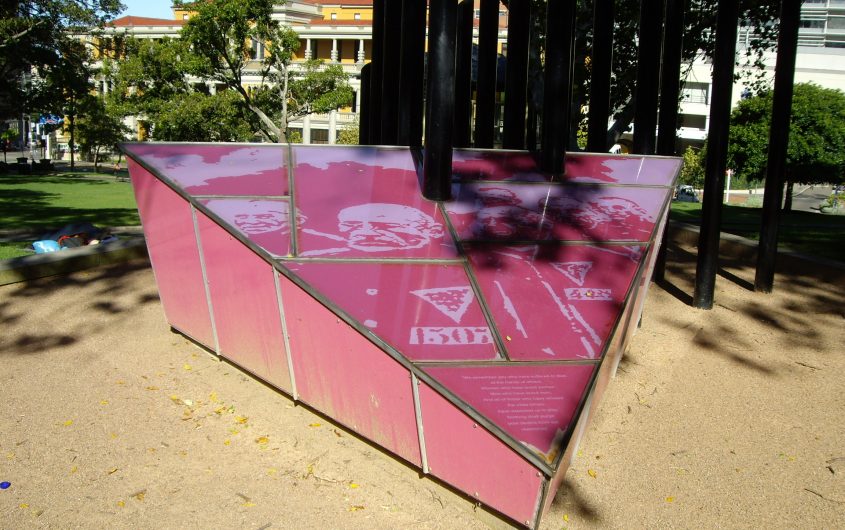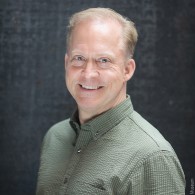
Queer Activism and Human Rights

Robert Beachy
Yonsei University
Dr. Robert Beachy holds a PhD in History from the University of Chicago. He is currently Associate Professor at the Underwood International College of Yonsei University (South Korea). He has taught full-time, first at Wake Forest University and then at Goucher College, where he received tenure and served as department chair. He has also been the recipient of numerous fellowships and prizes, including a John S. Guggenheim Memorial Foundation Fellowship, residential fellowships at the National Humanities Center (Duke, NC), and the Center for the Advanced Study of the Behavioral Sciences at Stanford University. He has also received grants from the American Philosophical Society, The Huntington Library, the German Academic Exchange Service, the Max Kade Foundation, the Max Planck Institute for History, and the Goethe Institute.
The American Historical Association awarded one of Professor Beachy’s journal articles the Higby Prize for the best article in European history. His most recent book Gay Berlin: Birthplace of a Modern Identity won the 2015 Randy Shilts Prize for the best non-fiction work in LGBTQ literature, sponsored by the Publishing Triangle. Gay Berlin was also named a Non-Fiction Honor Book by the Stonewall Book Awards of the American Library Association. He also received a “Soul of Stonewall” award from the Berlin Gay Pride Parade Association for the German translation, Das Andere Berlin.
During gay pride season, it is always tempting – at least from a German perspective – to focus narrowly on the German elements of queer history and emancipation. These accounts might feature the precocious activism and vibrant cultures of Imperial and Weimar Germany or perhaps the unprecedented harassment and persecution of sexual minorities under the Nazis. The contribution of the pink triangle that emerged as a symbol of gay liberation in the 1970s might also make an appearance in one of these narratives. Often these reflections conclude on a sour note that considers the slow, late, and seemingly inconsequential efforts to recognize and compensate victims, those persecuted in the Third Reich but also those who continued to suffer under the Nazi law, which was enforced, at least in West Germany, through the 1960s.
But it might be more productive to place these narratives within the broader context of post-World War II gay rights activism and that of German history more generally, namely the Holocaust and the subsequent efforts to memorialize and compensate its victims. Michael Rothberg’s formulation of a “multidirectional memory” allows queer activists to engage Holocaust commemoration (and reparations) in a productive way that avoids zero-sum equations.[1] Other recent models construct notions of “global” or “cosmopolitan” memory spaces that incorporate not only the victims of the Holocaust but also those of European colonialism and settler genocide, opening the possibility for the recognition of marginalized victim groups.[2]
A fascinating illustration of this dynamic has been the work of the Canadian NGO “Egal: Canada Human Rights Trust,” commissioned to develop a formal plan of restitution for the victims of homophobic and transphobic discrimination in Canada. The recently published final report recommends compensation for unjust sodomy convictions, the expunging of criminal records, and the restoration of military and bureaucratic pensions. The work of the Canadian NGO “Egal” was heavily influenced by the 2016 German “Burgi Report,” which the Canadians have also published in English translation. Commissioned in 2016 by the German Federal Anti-Discrimination Agency (FADA), the report, authored by the eponymous Munich law professor Dr. Martin Burgi, has helped to establish a program to “rehabilitate” and pay reparations to men convicted from 1945-1969 under German sodomy statute Paragraph 175.
[P]articularly in this season of gay pride, it would seem particularly important to move outside of the pink ghetto and assay the extent to which queer activism and restitution are imbricated in the broader construction and assertion of not only human rights but also programs to commemorate and ameliorate historic injustices.
But the Canadians have also taken inspiration from similar initiatives in England and Australia. English Prime Minister Gordon Brown made an official apology in 2009 for “the appalling way” that mathematician Alan Turing (1912-1954) was treated; in 2013 Queen Elizabeth II went a step further and extended a posthumous pardon to Turing. The so-called “Alan Turing” law was passed earlier in 2017, and it pardons any conviction under the British Labouchere Amendment – used against Turing – which, until 1967, punished “acts of gross indecency.” Of course, Turing, credited for shortening World War II with his code-breaking, tragically ended his own life in 1954 after submitting to chemical castration, which he had accepted in lieu of a prison sentence.
A similar restitution campaign in Australia led to a formal government apology, delivered by David Andrews, premier of the Australian state of Victoria, in May 2016. Victorians convicted under laws that criminalized homosexual acts – abolished in Victoria in 1981 and federally in 1994 – can now have their records expunged. Other Australian states have introduced or are considering similar measures. Additional inspirations for the Canadian campaign have been programs to commemorate and redress the settler genocides of both Canada and Australia. Formal apologies and monetary compensation for the genocide of Aboriginal Australians date back to the 1980s. Canada has developed similar programs to rectify historic crimes committed against its own First Nations peoples, as well as crimes committed against Asian and Eastern European minorities.
It goes without saying that the Holocaust has served as a central point of reference in different realms of commemoration, compensation, ethical argumentation, legal practice, as well as the formulation of state responses. It is also obvious that transnational exchanges have helped to universalize the “model” of Holocaust commemoration. But despite the proliferation of scholarship on the history of human rights (and their violation), on the relative success (or paucity) of programs of restitution for victims of the Holocaust and other genocides, and on the role and development of memorialization, little has been written to date on gay liberation or on projects of queer restitution (as outlined above) as they relate to expanding definitions of human rights. To that end, particularly in this season of gay pride, it would seem particularly important to move outside of the pink ghetto and assay the extent to which queer activism and restitution are imbricated in the broader construction and assertion of not only human rights but also programs to commemorate and ameliorate historic injustices.
[1] Michael Rothberg, Multidirectional Memory, Princeton University Press, 2009.
[2] Jie-Hyun Lim and Eve Rosenhaft, Mnemonic Solidarity: Global Interventions, Palgrave, 2021.








